



In recent years, we have held workshops for primary to high school students. By using a participatory methodology and visual aids, we achieved the students’ attention and their participation. As we’re aware of the differences between schools and municipalities, we always adapt the topics and level of each session to meet those needs. We can complement the sessions with work materials for the teacher and supervise as needed.
The project is based on the Jaime Mateu’s (president of the Foundation) Final Project for his degree in Education, presented in March of 2024: “Service learning and animal wellness: goals for the 21st century school”. The focus of the project, the materials created, and the evaluation are all aligned with the educational law LOMLOE, as well as the Law for Animal Welfare approved in March of 2023. The foundation’s proposal is to actively collaborate during the first three years of implementation for these learning situations by facilitating the teachers’ tasks, and providing follow-up.
We don’t just offer the opportunity to coordinate volunteers with us, we can also carry out sessions before or after the visit to explain concepts around animal welfare, responsible pet ownership, as well as defining what kind of actions can be put in place to improve the situation in each municipality.
Visits to the shelter can be done on Sundays, where we carry out a variety of activities adapted to the needs of each student. The awareness work can be carried out on Saturday or Sunday. The online option will depend on the skills of each student and the needs of the foundation.
If a school wants to organize an activity benefiting the foundation, we can help both in planning and execution.
The format of a research project based on field experience is optimal to understand the reality of a municipality with respect to animal welfare.
We hope to collaborate with many students who are concerned about animal welfare, as it helps us to create a realistic picture of the current situation as well as make proposals for improvements.
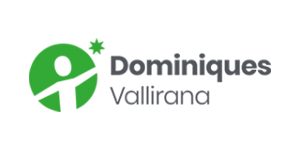
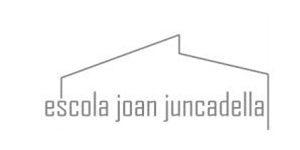
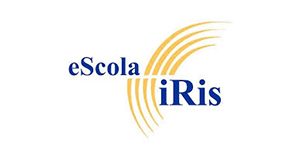
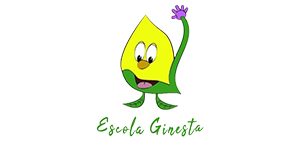
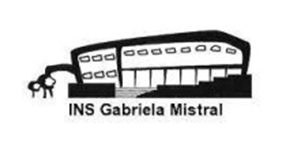
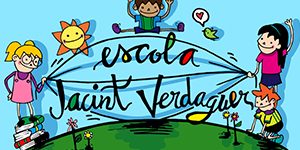

This is the first law which establishes a common framework for autonomous communities. In its article 2, the law states “To carry out educational activities around animal welfare” and puts focus on the education, training, and awareness of citizens, especially our youth. It also states in article 20 “it will drive the creation of agreements with other public administrations aimed at educating society on any form of animal abuse, in particular, educating minors on values related to the care of protection of animals”.
In addition, the current educational legislation created a framework to develop this type of educational proposals. Organic Law of Education 3/2020 of the 29th of December, which modified Organic Law 2/2006 of the 3rd of May (aka LOMLOE) states in Annex I that students should “develop a responsible attitude by becoming aware of the degradation of the environment as well as animal abuse based on the causes that provoke, aggravate or improve it, from both a systemic and a global vision. LOMLOE published basic competencies in the area of Education on Civic Values and Ethics and the respect for animal life and their care and protection, which is evaluation with criteria 3.2 “Actively commit with values, practices and attitudes in line with the respect, care, and protection of persons, animals and the planet…”.
We are funded by our member dues and with activities we organize such as concerts, fairs, benefits, etc as well as the public grants we’ve been awarded.

In recent years, we have held workshops for primary to high school students. By using a participatory methodology and visual aids, we achieved the students’ attention and their participation. As we’re aware of the differences between schools and municipalities, we always adapt the topics and level of each session to meet those needs. We can complement the sessions with work materials for the teacher and supervise as needed.



The format of a research project based on field experience is optimal to understand the reality of a municipality with respect to animal welfare.
We hope to collaborate with many students who are concerned about animal welfare, as it helps us to create a realistic picture of the current situation as well as make proposals for improvements.






This is the first law which establishes a common framework for autonomous communities. In its article 2, the law states “To carry out educational activities around animal welfare” and puts focus on the education, training, and awareness of citizens, especially our youth. It also states in article 20 “it will drive the creation of agreements with other public administrations aimed at educating society on any form of animal abuse, in particular, educating minors on values related to the care of protection of animals”.
In addition, the current educational legislation created a framework to develop this type of educational proposals. Organic Law of Education 3/2020 of the 29th of December, which modified Organic Law 2/2006 of the 3rd of May (aka LOMLOE) states in Annex I that students should “develop a responsible attitude by becoming aware of the degradation of the environment as well as animal abuse based on the causes that provoke, aggravate or improve it, from both a systemic and a global vision. LOMLOE published basic competencies in the area of Education on Civic Values and Ethics and the respect for animal life and their care and protection, which is evaluation with criteria 3.2 “Actively commit with values, practices and attitudes in line with the respect, care, and protection of persons, animals and the planet…”.
We are funded by our member dues and with activities we organize such as concerts, fairs, benefits, etc as well as the public grants we’ve been awarded.
Fundación Patas Arriba Barcelona – 08028 – Barcelona NIF: G-56230634
RESPONSABLE DEL TRATAMIENTO: Fundación Patas Arriba Barcelona, G56230634, C. Begur, núm. 53, 5-2, info@fundacionpatasarriba.com
FINALIDAD: Dar cumplimiento a las obligaciones legales; Gestionar la vinculación del donante con la entidad (alta como donante y cobros recurrentes); Enviar información sobre las actividades y campañas de la fundación por cualquier medio (incluyendo encuestas, campañas o acciones en las que el donante haya participado); Realización de perfiles para enviar al donante comunicaciones personalizadas (inclusive promocionales o comerciales) por cualquier medio; Facilitar la participación: en programas, proyectos o actividades de la organización; Gestionar la contratación del seguro para la mascota del donante. Para otros fines siempre que promueven el bienestar animal o la erradicación del maltrato o abandono de los animales.
LEGITIMACIÓN: Consentimiento del interesado, relación contractual e interés legítimo.
BASE LEGAL: Reglamento (UE) 2016/679 del Parlamento Europeo y del Consejo, de 27 de abril de 2016, relativo a la protección de las personas físicas en lo que respecta al tratamiento de datos personales y a la libre circulación de estos datos y Ley Orgánica 3/2018, de 5 de diciembre, de protección de datos personales y garantía de los derechos digitales. Ley 34/2002, de 11 de julio, de servicios de la sociedad de la información y del comercio electrónico.
DESTINATARIOS: La Fundación podrá ceder los datos personales a terceros que nos ayuden o colaboren en la gestión de la Fundación en el marco de las finalidades indicadas, así como a las Administraciones Públicas en los supuestos previstos en la normativa vigente. Cuando una ley así lo requiera o, en su caso, sea necesario podrán comunicarse también a las Fuerzas y Cuerpos de Seguridad y/o Juzgados y Tribunales u otras Autoridades que sean competentes. No están previstas las transferencias internacionales de datos.
DURACIÓN: Los datos proporcionados se conservarán mientras se mantenga la condición de donante y durante el plazo legal previsto por la normativa vigente que resulte aplicable a la categoría de dato en cuestión (especialmente, en materia de blanqueo de capitales, fiscal y contable).
DERECHOS: Le asiste el derecho de acceso, rectificación, cancelación o supresión y oposición, así como el derecho a la limitación de la finalidad y portabilidad de sus datos en formato automatizado, así como el derecho a retirar el consentimiento prestado en cualquier momento. A tales efectos, podrá dirigirse a nuestra dirección: info@fundacionpatasarriba.com y/o al teléfono +34 675 40 42 54.
MEDIDAS DE SEGURIDAD: Los datos personales facilitados se tratarán de forma confidencial. La Fundación ha implantado medidas de seguridad de tipo técnico y organizativas que permiten mantener la confidencialidad y la integridad de los datos de los usuarios y evitar la alteración, pérdida, tratamientos y/o accesos no autorizados, teniendo en cuenta el estado de la tecnología, la naturaleza de los datos almacenados y los riesgos a los que están expuestos, provengan de la acción humana o del medio físico o natural.